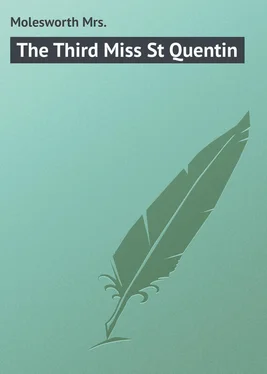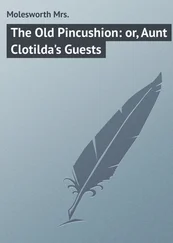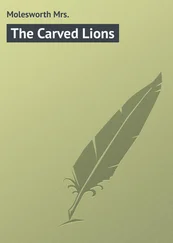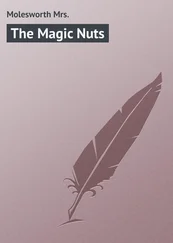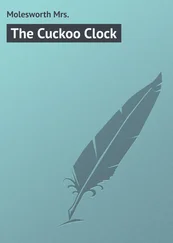Mrs. Molesworth - The Third Miss St Quentin
Здесь есть возможность читать онлайн «Mrs. Molesworth - The Third Miss St Quentin» — ознакомительный отрывок электронной книги совершенно бесплатно, а после прочтения отрывка купить полную версию. В некоторых случаях можно слушать аудио, скачать через торрент в формате fb2 и присутствует краткое содержание. Жанр: foreign_prose, foreign_children, на английском языке. Описание произведения, (предисловие) а так же отзывы посетителей доступны на портале библиотеки ЛибКат.
- Название:The Third Miss St Quentin
- Автор:
- Жанр:
- Год:неизвестен
- ISBN:нет данных
- Рейтинг книги:5 / 5. Голосов: 1
-
Избранное:Добавить в избранное
- Отзывы:
-
Ваша оценка:
- 100
- 1
- 2
- 3
- 4
- 5
The Third Miss St Quentin: краткое содержание, описание и аннотация
Предлагаем к чтению аннотацию, описание, краткое содержание или предисловие (зависит от того, что написал сам автор книги «The Third Miss St Quentin»). Если вы не нашли необходимую информацию о книге — напишите в комментариях, мы постараемся отыскать её.
The Third Miss St Quentin — читать онлайн ознакомительный отрывок
Ниже представлен текст книги, разбитый по страницам. Система сохранения места последней прочитанной страницы, позволяет с удобством читать онлайн бесплатно книгу «The Third Miss St Quentin», без необходимости каждый раз заново искать на чём Вы остановились. Поставьте закладку, и сможете в любой момент перейти на страницу, на которой закончили чтение.
Интервал:
Закладка:
Meantime, the cause of all these discussions was waiting alone in the library. She had seated herself when first shown in, in a matter-of-course, unrestrained manner, as if quite at her ease. But this had been for the benefit of Barnes and his subordinates. No sooner was she left alone, than the girl got up and strolled nervously towards the window, where she stood looking out. Now that the deed was done, her courage began to flag.
“I wonder,” she said to herself, clasping her little hands together, “I wonder what they’ll say. They surely can’t blame me, when I tell them how unendurable it was, and that even Aunt Phillis, in her heart, though she wouldn’t own it, wished I were gone, for I know she did. She’ll have got my telegram by now. How delighted old Burton will be – that’s the only bit of it I hate to think of! Still, staying there to spite him would have been quarrelling with my nose – is that it? – no, quarrelling with my face – oh bother, I can’t get it right, I do so wonder what they’ll all say here.”
There was nothing to help her in what she saw outside – not a human being was in sight – only the lovely, perfectly kept grounds, looking perhaps at their very best in the soft mellowness of the summer afternoon.
“How delightful it is here!” she thought next; “what a beautiful room, and what splendid books,” and her girlish heart swelled with satisfaction to think that here was her home, the spot on earth where she had an undoubted, an unquestionable right to be! “How poky auntie’s house would seem in comparison – and Mr Burton’s ‘mansion’ even worse, for any way there was nothing vulgar or parvenu about our little house. Still – it does seem rather a shame that I should have been out of it all, all these years, I, that have just as good a right, as poor old Harvey used to tell me, to everything here as Madelene and Ermine. I do hope I shall be able to like them – of course I must not let myself be ‘put upon,’ but still – I consider they have kept the best of things to themselves hitherto and – oh I wish she’d be quick and come. I don’t want to seem nervous and yet I am , horribly so.”
She tapped her parasol on the floor, then she glanced furtively in a mirror to see how she was looking.
“My hair’s rather rough,” she thought, “but otherwise I don’t think I look bad. I wish I didn’t seem quite so young – and, oh, I do wish I were a little taller!”
She was small certainly, but as she was also slight and very well proportioned, this did not really detract from her — beauty , one could scarcely call it. Ella St Quentin was not beautiful; she was just exceedingly pretty. Her hair was brown, a shade lighter than Ermine’s perhaps, but dark in comparison with Madelene’s fair coils, and her eyes were hazel, lovely eyes, pathetic and merry by turns, as it suited their capricious little owner to make them, and her features were all charming. There were good points in this pretty face too, real sweetness in the curves of the mouth, frankness and honesty in the forehead and no lack of resolution in the chin – but the whole was the face of a child rather than a woman – a well-meaning, but fitful and undisciplined child, who had known little of life and its graver lessons, whom one would tremble to expose to the storms which, sooner or later, in one form or another, all must face. Yet there was latent strength too, if one looked more closely; it was a face to make one anxious but hopeful also.
She was well but simply dressed. Save for the extreme neatness of everything about her, she would have looked a mere school-girl; but the sweeps of her grey draperies, the poise of her head, nay, the very fit of her gloves, at once removed her from any possibility of being relegated to the category of girlish hobbledehoys. She had not a trace of awkwardness about her; she had passed through all the stages of teeth-changing, hair “doing up,” skirts lengthening and such crises, as one to the manner born – awkwardness and Ella were not to be thought of in the same century.
The door opening at last, Ella flashed round from the window – was it the door, or her fancy only? For now all seemed still again, no, yes – the handle was moving a very little – truth to tell, Madelene holding the outside knob, was making a last effort to screw up her courage so as to meet her young sister affectionately but with all her wits about her nevertheless.
There was no drawing back now that she had begun to turn the handle, and with a sigh which Ella could not hear, Miss St Quentin came in. Ella gasped slightly – “how beautiful,” was her first thought, to be however instantly followed by a second, “but how cold, and how horribly stuck-up! No, I feel it already – I shall never like her.”
But Madelene, pale and calm, was advancing across the room.
“Ella?” she said, as if till that moment she had had some lingering doubt on the matter, “Ella – it is really you! What a surprise – no, I would not have known you again in the least. Tell me, there is nothing wrong? Nothing the matter with your aunt, I hope?”
She had stooped to kiss the young girl as she spoke. It would be untrue to say that the kiss was a very affectionate one, but on the other hand there was no intentional coldness about it. But Ella was not of this opinion.
“No, thank you,” she replied, after submitting to, though not in any wise returning, the sisterly embrace. “Aunt Phillis is quite well – at this moment she must be, I am afraid, rather upset, for she will have got my telegram. I sent her one from Weevilscoombe station when I arrived.”
“And why should that upset her?” asked Madelene; “she asked you to telegraph your safe arrival, I suppose? But you didn’t travel alone?”
“Yes, indeed I did,” said Ella with a slight laugh. It was a nervous laugh in reality, but to her sister it sounded hard and a little defiant. “I not only travelled alone, but I came off without any one knowing. In fact auntie would only know that I had left her for good, when she got my telegram.”
Miss St Quentin’s pale face flushed a little, then the momentary colour faded, leaving her paler than before. She sat down, and motioned to her sister to do the same.
“I am very sorry, very, very sorry to hear this,” she said, nerving herself to speak. “Ella, I am afraid you have done very wrong, and foolishly. It is not using Mrs Robertson well after all her care of you – replacing a mother to you and giving you a home all these years. And – it is not a good beginning of your future life with us, to have done what we – what papa cannot approve of.”
Ella half rose from the chair on which she had only that moment seated herself. Her eyes sparkled ominously, her face flushed too, but after a different fashion from Madelene’s.
“I don’t know anything about your not approving, and as for papa – well at least he can tell me himself what he thinks. But as for Aunt Phillis – I am sorry if I have grieved her. I would not have done so if I could have helped it, but I don’t see that I could. It isn’t my fault that she is going to marry a vulgar, purse-proud old snob, who had already begun to cast up to me, yes, actually to cast up to me , the daughter of Colonel St Quentin of Coombesthorpe, what his wife-to-be had done for me and spent on me as if I were a charity-child! And that touches on the point of the whole. I am grateful to poor auntie for all her love and care,” and here the young, excited voice quivered a little, “but I don’t see that I need to be grateful to her for what you may call substantial things – she didn’t need to give me a home, as you say, or to spend her money on me – and a good deal of what was spent was my own money, or at least papa’s, which is the same thing; she has told me so herself. I had my own home, just as you and Ermine have – I am papa’s daughter just as much as you two are, even though we hadn’t the same mother. Do you think now – in the name of common-sense – do you see that I should be grateful for being taken away from my own proper home, such a home as this – for no reason at all that I can see except that auntie herself wished it.”
Читать дальшеИнтервал:
Закладка:
Похожие книги на «The Third Miss St Quentin»
Представляем Вашему вниманию похожие книги на «The Third Miss St Quentin» списком для выбора. Мы отобрали схожую по названию и смыслу литературу в надежде предоставить читателям больше вариантов отыскать новые, интересные, ещё непрочитанные произведения.
Обсуждение, отзывы о книге «The Third Miss St Quentin» и просто собственные мнения читателей. Оставьте ваши комментарии, напишите, что Вы думаете о произведении, его смысле или главных героях. Укажите что конкретно понравилось, а что нет, и почему Вы так считаете.
